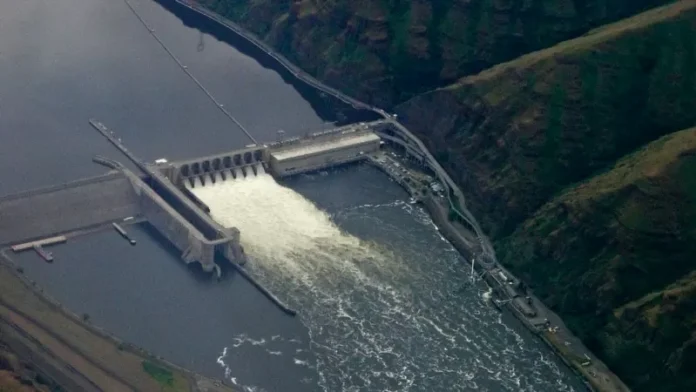The recent acknowledgment by the U.S. government of its harmful role in building and operating dams in the Pacific Northwest is a significant step towards righting past wrongs and rectifying the devastating impact on Native American tribes and their communities.
For too long, the government has prioritized industrial development and economic growth at the expense of tribal cultures, sacred sites, economies, and homes. The construction of dams in the region, while bringing electricity, irrigation, and jobs to nearby communities, also caused immeasurable harm to the tribes who consider salmon not only a crucial food source but also a part of their cultural and spiritual identity.
The new report released by the Biden administration highlights the government’s disregard for the well-being of the tribes and their ancestral lands. It acknowledges that the dams have caused irreparable damage to the salmon runs and continue to threaten the survival of this iconic species. Despite decades of efforts and funding to mitigate these impacts, the salmon stocks remain threatened or endangered, and the continued operation of the dams perpetuates the adverse effects.
This report comes at a time when the government has announced a $1 billion effort to restore the region’s salmon runs and work closely with the tribes to achieve this goal. It is heartening to see the administration recognizing the importance of partnering with the tribes and addressing the cultural, spiritual, and economic detriments caused by the dams.
The Interior Department’s report also highlights the need to increase the production and storage of renewable energy to replace hydropower generation that would be lost if the four lower Snake River dams are ever breached. This would not only help in recovering the salmon but also provide access to pristine habitat and spawning grounds in Idaho.
The White House Council on Environmental Quality Chair Brenda Mallory and Interior Secretary Deb Haaland, the first Native American cabinet secretary, stated that President Biden recognizes the importance of acknowledging past injustices to confront them and move forward. The conversation about the history and legacy of the federal government’s management of the Columbia River is long overdue, and this report is a step in the right direction.
While the report has been well-received by tribal representatives, it is long-belated and should have been done much earlier. The tribes have long been ignored, and their concerns about the dams’ impact on their people and their way of life have been disregarded. It is time to rectify these past wrongs and work towards a better future for all.
The construction of dams on the Columbia River and its tributaries, the largest in the Northwest, was a major undertaking in the early 20th century, providing water for irrigation and flood control. However, it also compounded the damage already being caused by mining, logging, and non-tribal salmon cannery operations, ultimately leading to the decline of the salmon runs.
The report was accompanied by the announcement of a new task force to coordinate salmon recovery efforts across federal agencies, a crucial step towards addressing the issue comprehensively. The government must work closely with the tribes and other stakeholders to develop a sustainable plan that benefits all parties involved.
Tribal representatives have expressed their gratitude for the government’s formal acknowledgment of the harm caused by the dams. The Nez Perce Tribe’s chairman, Shannon Wheeler, stated that the salmon have been suffering the consequences since the dams were first put in, and it is time to end their suffering. The lack of salmon has not only affected the tribes’ way of life but also the ecosystem as a whole, including the endangered population of killer whales that depend on the salmon for survival.
The decline of the salmon runs in the Columbia River Basin, once the world’s greatest salmon-producing river system, is a cause for concern. Scientists estimate that only about 2 million salmon and steelhead return to the river and its tributaries each year, a significant decrease from the 16 million that used to return annually. This decline has also had a severe impact on the tribes, with the average harvest now yielding barely 1 pound of fish per tribal member, compared to 700 pounds in the past.
The construction of dams has been a contentious issue in the region for decades, with some arguing that they are necessary for economic growth and clean energy goals. However, there is growing recognition that the harm caused to fish and the ecosystem outweighs their benefits. The removal of dams on the Elwha River in Washington and the Klamath River along the Oregon-California border has already shown positive results in terms of salmon recovery.
The report also sheds

